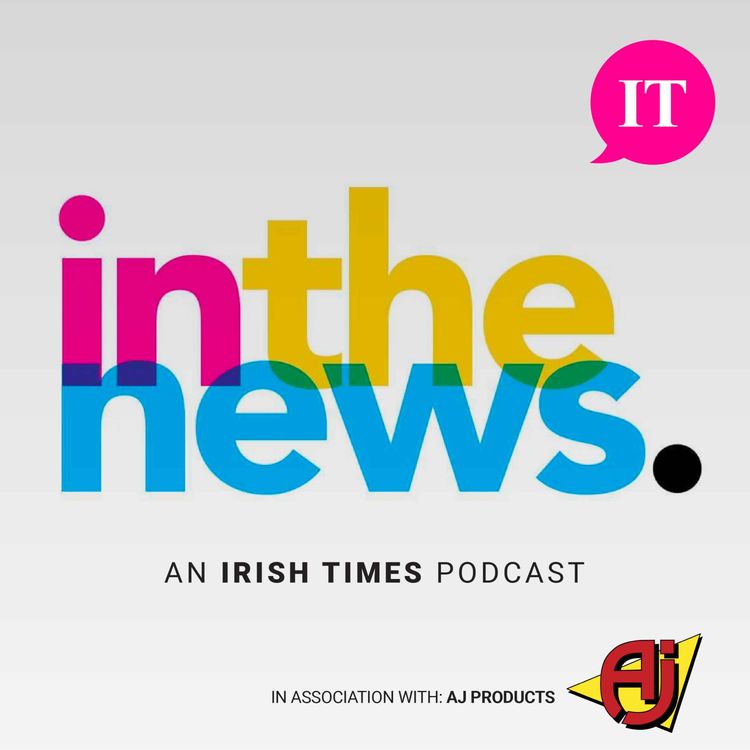Share

In The News
"It's worse than ever": The Capitol riot one year on
•
When rioters smashed their way into the US Capitol one year ago this week, it was seen as both a disaster for US democracy but also a potential turning point after the divisiveness of the Trump years. One year on, those hopes have faded and the polarisation of America is worse than ever, says our new Washington correspondent Martin Wall.
More episodes
View all episodes

Have new rules fixed Gaelic football?
28:16|The GAA Football All-Ireland Senior Championship starts this weekend.It’s one of the biggest competitions in all of Irish sport. The All-Ireland football final has traditionally been among the top five most-watched TV broadcasts of the year. But last year, the hurling final outstripped it by almost 150,000 viewers.That’s because GAA football has had a problem that has been growing for more than 10 years; even its most ardent fans say the game has become boring.Too defensive, too slow, too much hand passing, not enough flair.Former Dublin manager Jim Gavin was called in to fix football, to come up with a new set of rules that would revitalise the game before it was too late. And he did. So are they working?Irish Times sports writer Malachy Clerkin explains why the greatest shake-up in the history of GAA football was so direly needed and how he sees them working.Presented by Bernice Harrison. Produced by Declan Conlon.
Do Ireland’s laws on sex work need to change?
20:07|Last week, a Brazilian man who rented out properties across rural Ireland under false pretences and used them as brothels, was jailed for nine years.Ilamar Rodrigues Ribeiro, who pleaded guilty to brothel keeping, possession of child pornography, and money laundering, was linked to rental properties in counties Longford, Kildare, Cavan, Wexford, Roscommon, Leitrim and Carlow.The case highlighted how the sex industry continues to thrive throughout Ireland, while also shining a light on the State’s 2017 legislation which made the purchase of sex illegal, but not the sale.The legislation was designed to shift the legal burden towards those who buy sex rather than the sellers, aiming to protect those most at risk within the sex industry. But has this worked?A long-awaited review of the legislation, which was finally published last week, acknowledged that the demand for sexual services has not decreased in recent years.Why is enforcing this legislation so difficult and do those within the sex industry feel more protected by this law?Irish Times reporter Órla Ryan discuses the review of Ireland’s contentious sex-work legislation.
Trump launches a trade war against the world
12:33|Last night US president Donald Trump announced tariffs on imports from dozens of countries, including Ireland and the European Union as a whole, launching a potential trade war on a global scale.Irish Times political editor Pat Leahy messaged In the News with some analysis of the significance of the moves announced by Trump and how the Irish government may respond. But first, we listen back to the main points from Trump's address.
Why are two Irish citizens being deported from Germany despite no convictions?
16:24|Two Irish citizens living in Berlin have been issued with deportation orders and instructed to leave Germany before April 21st after facing charges over alleged actions at pro-Palestinian protests.Lawyers for their case have raised concerns that the deportation orders undermine civil liberties for EU citizens living in Germany, as neither have been convicted of any criminal offences in the German courts.Bert Murray (31) and Shane O’Brien (29) have been attending protests in support of Palestinians since the Israel-Hamas conflict began in October 2023.On this episode of In the News Bert Murray talks about her case and Irish Times columnist Una Mullally explains the background to the story.
The climate threat to Irish houses
25:23|As sea levels rise and extreme floods become more frequent, increasing numbers of Irish homeowners are struggling to secure insurance for their properties. Midleton resident Caroline Leahy, who's home was affected by Storm Babet in October 2023, is one of them. In this episode, she talks to Sorcha Pollak about living in constant fear of the next disaster and why the Government response falls short of what is needed to help those impacted. Later on, Environment and Science editor Kevin O’Sullivan on how climate change is impacting the situation.
From Wexford trucker to Ceann Comhairle: Who is Verona Murphy?
27:16|Verona Murphy made history last December when she became the first female Ceann Comhairle of Dáil Éireann. After just months into that role, she has become the first to face a vote of no confidence.So what does this mean for Murphy? How might her background and experience help her navigate this political storm? And what else do we know about the politician who first made a name for herself in the haulage industry?Political correspondent Harry McGee traces her career and outlines the challenges facing her.Presented by Bernice Harrison. Produced by Suzanne Brennan.
Signal scandal: what is Trump doing about his leaky administration?
22:07|On March 15th the US military carried out air strikes against the Iran backed Houthis in Yemen. It was an operation that should have been top secret, its planning known only to key Trump administration officials. But it wasn’t.Through an astonishing breach in national security, the editor of the Atlantic magazine Jeffrey Goldberg was invited into a group chat on Signal where US vice-president JD Vance, secretary of defence Pete Hegseth, and national security adviser Mike Waltz, among others were sharing highly-classified information in advance of the military strike.President Donald Trump responded to this astonishing leak, not by initiating a round of firings, but with a robust deny and deflect strategy.Scott Lucas, Professor of International Politics at the UCD Clinton Institute explains how this Signal leak happened and how the story unfolded this week.Presented by Bernice Harrison. Produced by John Casey.
What we've learned from the Garron Noone controversy
22:09|Garron Noone is one of the country's most popular social media stars, with a combined 3.5 million followers on Tiktok and Instagram. Usually he's gently poking fun at badly made cups of tea or ranking his favourite ice creams, but last week he veered off brand and ended up at the centre of an international culture war. After making comments about Ireland's immigration crisis, he drew support from the likes of right-wing commentator Katie Hopkins and misogynist influencer Tristan Tate. He's since explained his points were not well communicated and he's dismayed by the attention from the far right. But Irish Times media columnist Hugh Linehan says Noone's comments have thrown fresh light on the language and toxic discourse that surrounds discussions of immigration. This episode contains strong language.Presented by Bernice Harrison. Produced by Aideen Finnegan.
How a Dublin school became embroiled in the GAA Catfish drama
17:17|Irish Times education editor Carl O’Brien discusses how a Dublin school investigated claims that the alleged GAA catfish is among its staff.Presented by Sorcha Pollak. Produced by Suzanne Brennan.